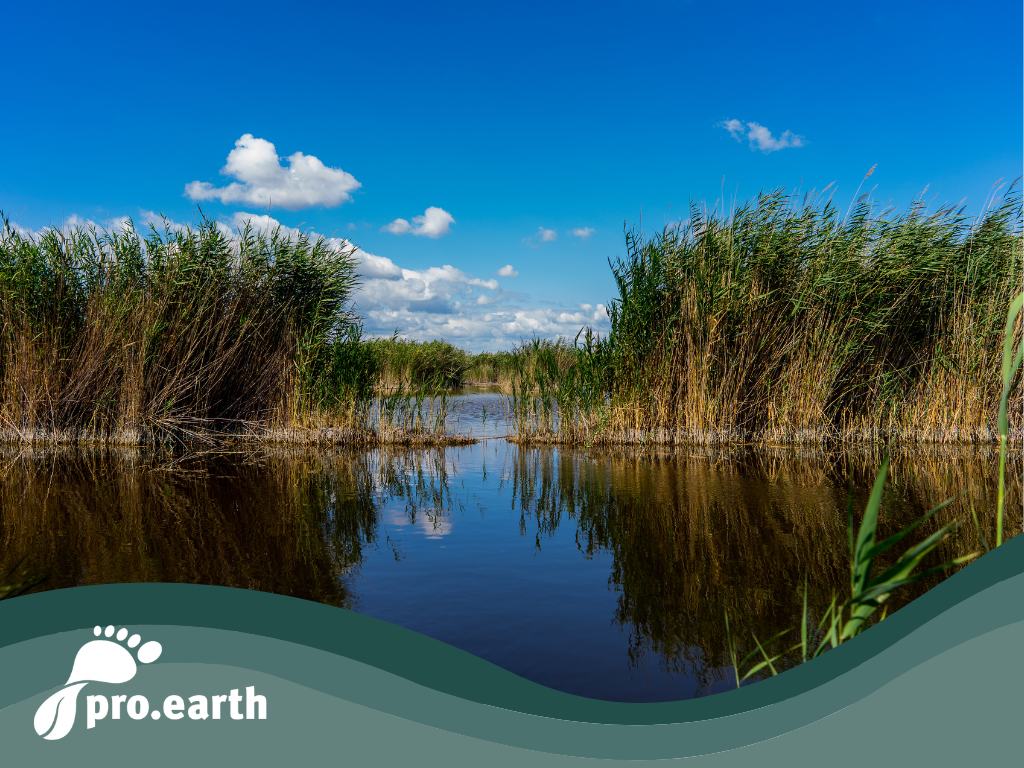Danube water supply in Lake Neusiedl would cause irreparable damage

Austria's largest lake can't escape the headlines. First it was said that it would dry up. This is to be prevented by means of an artificial water supply, which led to the next headline. This week, the UNESCO World Heritage Secretariat and the Ramsar Secretariat were on a joint "Advisory Mission" to Lake Neusiedl. Their aim: to gain an on-site impression of the controversial water supply plans.
The current water level of the lake
The months of May and June brought sufficient rain, in contrast to the months of July and August, when the lake lost height again. The water level on 1 September was 115.08 meters above the Adriatic Sea, 15 centimetres higher than at the same time last year (source: Hydrographic Service Burgenland). The "Lake Neusiedl Task Force", headed by Christian Seiler, is looking into a possible water supply from the Danube. This is viewed very critically by environmental organizations such as the WWF.
UNESCO and WWF on a mission in the lake
From October 2 to 5, 2023, the UNESCO World Heritage Secretariat and the Ramsar Secretariat were on a joint "Advisory Mission" to Lake Neusiedl. Their aim: to gain an on-site impression of the controversial water supply plans.
On this occasion, the nature conservation organization WWF Austria is issuing an urgent warning about the irreparable damage caused by the artificial supply of Danube water to Lake Neusiedl:
"An influx of external water would visibly sweeten the saline lake and ultimately lead to the complete loss of the salt."
warns WWF nature conservation expert Bernhard Kohler. "Salinization began with the construction of the Einser Canal 100 years ago and is already dangerously advanced. With every discharge via the canal, the lake has lost large quantities of salt. A supply of calcareous Danube water would accelerate the leaching and finish off the lake."
Salinity of the lake decreases
Today, the salt content of the lake is only 1-2 grams per liter. Before the Einser Canal was built, up to 16 grams were measured - this corresponds to around half the salt concentration of the Atlantic Ocean. "Almost all animal and plant species that make Lake Neusiedl a unique body of water in Europe require a certain salt content," explains Kohler. "In addition, Lake Neusiedl will lose its self-cleaning capacity as a result of the pipeline and there will be a massive increase in algae and accelerated siltation and sedimentation of the lake."
Rethinking the use of water
Instead of channeling Danube water into the lake, the WWF believes that a different water management system is needed in the region:
Storing floodwater instead of draining it away
Flood waters should no longer be discharged to the same extent as before. Instead, the large floodplains that were cut off in the past should be reconnected to the lake, as they can store reserves for dry periods during floods. "This is particularly necessary in view of the climate crisis. It not only leads to longer periods of drought, but also to more severe flood events," explains WWF expert Bernhard Kohler.
Water management must adapt to this development and build up reserves in rainy times in order to be prepared for periods of low rainfall. However, in order to keep more water in the lake, the lakeside resorts must also be made flood-proof.
"The Einser Canal has taken the floods and salt away from the lake. It's time to give it back its natural floods and stop the loss of salt by largely avoiding discharges," says Kohler. "Thesolution to the water problem lies in getting closer to nature, not in more artificiality."
Mistakes of the last 50 to 60 years are now becoming apparent
In addition to climate change with extreme weather events such as hail, heavy rain and dry spells, the mistakes of recent decades are now also making themselves felt, according to winegrower Josef Umathum from Frauenkirchen in Seewinkel. "Every corner was somehow reclaimed, i.e. the swamps were drained." Houses now stand on areas where there used to be swamps. Many trees, bushes and entire windbreaks have had to give way to human reclamation. This has intensified the wind, which can sweep across the landscape unchecked, drying out the soil on the one hand and carrying away fertile soil on the other, which leads to soil erosion. Umathum therefore advocates reforestation.
"The soil is the most important thing. It is our greatest asset," explained the winegrower in the APA interview. If the soil is worked too often, it "can no longer absorb water and store energy, which is so important for the next hot and dry period", Umathum continued. Building healthy soil that stores CO₂ and water is an essential task for farmers.
The winegrower also has little sympathy for the artificial supply of water to Lake Neusiedl.
Background to the Ramsar Convention for the Protection of Wetlands
The Ramsar Convention is an international agreement for the protection of wetlands, which Austria joined exactly 40 years ago. Lake Neusiedl was the first wetland to be nominated by Austria as part of its accession and the Republic and Province of Burgenland committed to its conservation and wise use at the time. The Ramsar Convention defines "wise use" as the careful use of wetlands that respects the ecological integrity of the areas.
If the ecological integrity of a nominated wetland appears to be at risk, an international advisory mission of Ramsar experts can be arranged to make recommendations for improved protection or even to advise against projects that would endanger the site. A joint mission of the Ramsar and UNESCO World Heritage Secretariats took place at Lake Neusiedl this week from October 2 to 5, 2023, because both designations are endangered by ongoing and planned developments.






